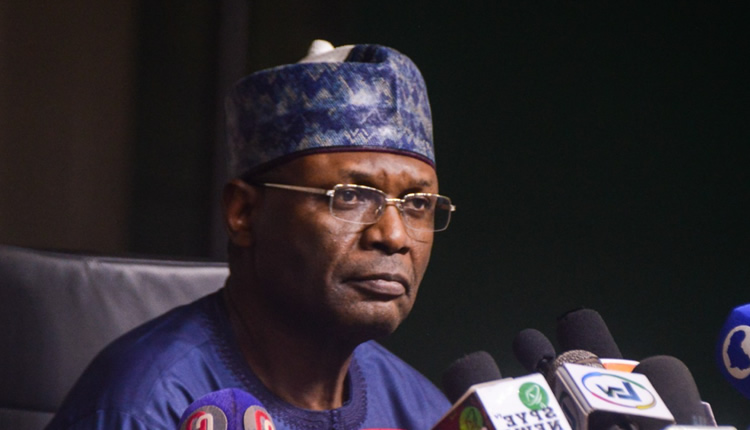The Nigerian political landscape was briefly roiled by a wave of misinformation concerning the chairmanship of the Independent National Electoral Commission (INEC). False rumors alleging the dismissal of Professor Mahmood Yakubu, the current INEC Chairman, and his purported replacement with Professor Bashiru Olamilekan spread rapidly through social media channels, particularly WhatsApp. This unfounded speculation originated from an unattributed message lacking any credible source, yet it quickly gained traction, generating confusion and uncertainty amongst the public. The timing of this misinformation was particularly sensitive, given that Professor Yakubu’s second term as INEC Chairman is nearing its conclusion later this year. This context likely contributed to the rapid spread and heightened concern surrounding the rumor.
The INEC swiftly responded to the circulating falsehood. Rotimi Oyekanmi, the Chief Press Secretary to the INEC Chairman, categorically denied the rumors, urging the public to disregard them. Further solidifying the veracity of his statement, Professor Yakubu himself was observed presiding over a routine weekly management meeting at the INEC headquarters in Abuja on Tuesday. This meeting, attended by several National Commissioners, including prominent figures like Sam Olumekun, May Agbamuche-Mbu, Kenneth Ukeagu, Abdullahi Abdu Zuru, and Baba Bila, underscored the normalcy of INEC operations and implicitly refuted the rumors of leadership change. The commission also leveraged its official social media presence on X (formerly Twitter) to confirm the meeting and highlight its focus on crucial decision-making.
The Arewa Youth Consultative Forum (AYCF), a prominent northern Nigerian youth organization, vehemently condemned the dissemination of these false rumors. Alhaji Yerima Shettima, the President General of the AYCF, characterized the misinformation campaign as a deliberate attempt to undermine democratic institutions in Nigeria, particularly the integrity of the electoral process. Recognizing the potential for such rumors to sow discord and erode public trust, Shettima emphasized the importance of Professor Yakubu’s role in promoting free and fair elections in the country. He framed any attempt to destabilize the electoral commission as an affront to Nigeria’s democratic principles.
Shettima issued a stern warning to those propagating the false information, urging them to cease their disruptive activities and emphasizing the potential harm such misinformation could inflict on the aspirations of the Nigerian people. Instead of engaging in divisive tactics, Shettima called for national unity and support for the Tinubu administration’s focus on national development and reform. He further cautioned against the dangers inherent in spreading unverified information and appealed for responsible social media usage. Shettima urged the public to rely solely on official sources, specifically citing the office of the Secretary to the Government of the Federation or similar official channels, for credible information regarding significant political developments.
This incident underscores the growing challenge posed by misinformation in the digital age. The rapid spread of the false rumor regarding Professor Yakubu’s dismissal highlights the speed and reach with which unverified information can proliferate online, potentially destabilizing public trust and inciting unrest. It also emphasizes the crucial role of official bodies and civil society organizations in countering such misinformation narratives quickly and effectively. The prompt and unequivocal responses from both INEC and the AYCF played a significant role in mitigating the potential damage caused by these false claims.
The incident serves as a critical reminder of the need for media literacy and responsible information consumption, particularly in the context of a vibrant democracy like Nigeria. The AYCF’s appeal for public vigilance and reliance on verifiable sources underscores the importance of discerning credible information from false narratives. As Nigeria navigates its political landscape, the episode highlights the continuous need for vigilance against misinformation and a commitment to upholding the integrity of democratic institutions. The incident also reinforces the vital role of free press and robust civil society organizations in ensuring transparency and accountability in governance.


